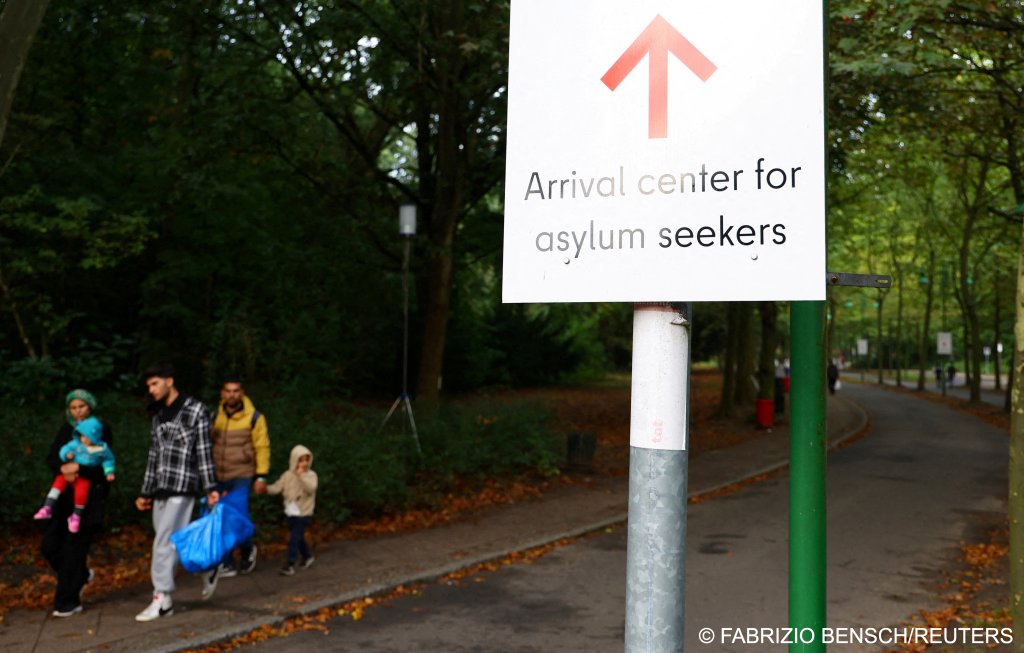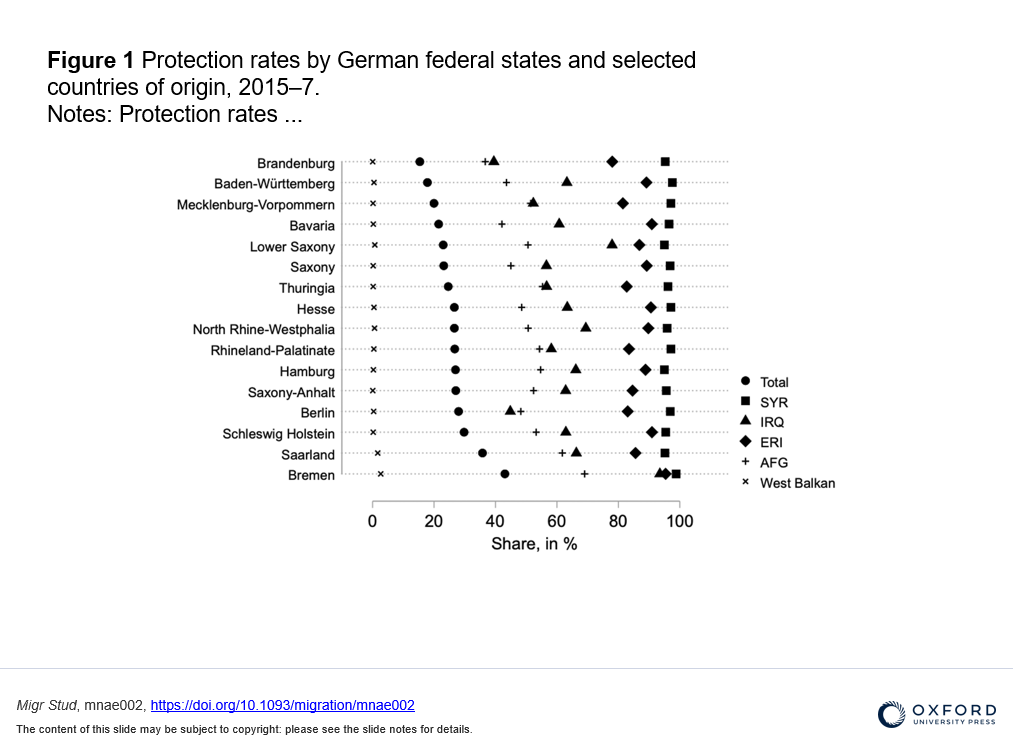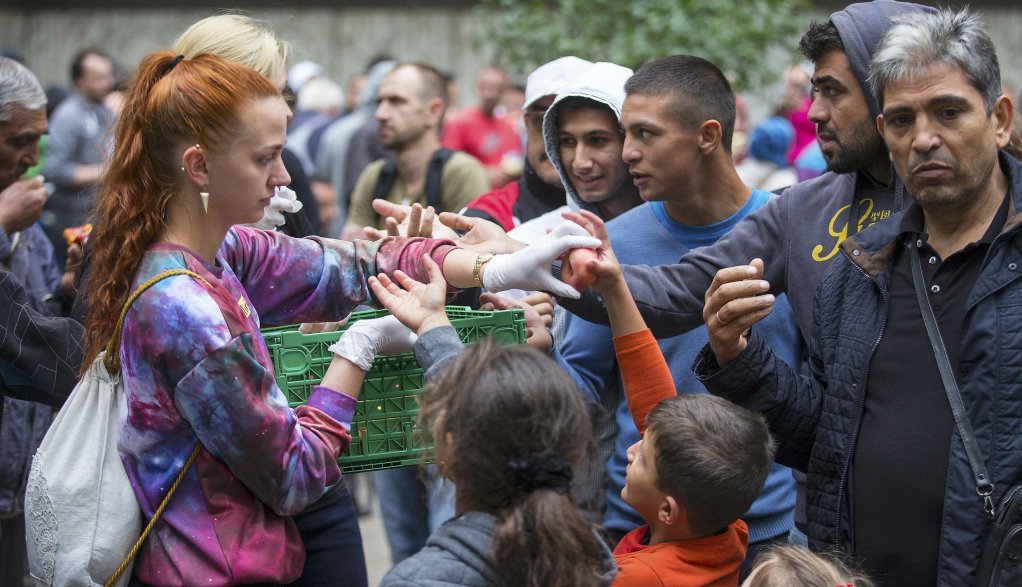An applicant's chance of being granted asylum can differ depending on which German federal state they are living in, a new study indicates. The likelihood of obtaining asylum seems to depend partly on the general level of skepticism toward migrants in a region's government and population, German researchers found.
A study published March 6 in the journal Migration Studies (Oxford University Press) found that chances of obtaining asylum in Germany's 16 federal states vary depending on how the state's political leadership and population position themselves on migration.
The researchers used data from Germany's Federal Bureau for Migration and Refugees (BAMF).
"The levels of protection granted in a certain region are dependent on how immigration-skeptic their populations are," the researchers from the universities of Konstanz and Bamberg, as well as the Nuremberg Institute for Employment Market Research (IAB), wrote
'Perplexing regional differences'
Critics of German migration policy have long complained that the chances of obtaining asylum vary heavily by region.
This perception is borne out by the study's data -- indeed, researchers found that sometimes the difference in the number of asylum applications granted in two different states could differ by double digits.

Until now, it has been difficult to tell whether these differences could be explicitly linked to state leaders' positioning on migration. In the study, researchers set out to try and answer that question -- and they found that political leanings do play a role.
Regional preferences of the population and the state governments appeared to influence the risk of asylum seekers not receiving protection from the Federal Office for Migration and Refugees (BAMF) -- a central body.
Skepticism towards migrants plays a role in officers' decisions
In regions where the general population is overwhelmingly skeptical towards migration, the chances of obtaining asylum seem to be lower.
Also read: More and more Turkish citizens seek asylum in Germany
The findings are significant because the decision to grant protection to a person should be based solely on the situation they outline in their asylum application and their country of origin, the researchers wrote.
Muslim asylum seekers, for instance, might have a lower chance of receiving protection in some regions than other applicants, the researchers explained in a press release outlining the results of the study.
Confounding expectations
Perhaps contrary to some people’s expectations, the chance of being granted protection in states where the Social Democrats (SPD) have long been in power is lower than in states where the Christian Democrats (CDU) run the government.

The researchers wrote that the high margin of difference between states is likely due to the fact that BAMF employees in charge of making asylum decisions are left with a significant amount of room for interpretation as to what constitutes “political persecution” or a "well-founded fear."
That room could allow political preferences to "consciously or unconsciously" influence decisions, the authors wrote.
After examining BAMF asylum decisions, the researchers found that officers' choices to grant asylum did not change when they knew more about the situation in an asylum seeker’s country of origin nor when workloads were reduced.
Also read: How do you apply for asylum in Germany based on FGM?
Measures that did appear to make a difference were regular enrollment in courses to help improve processes, as well as a system of checks to ensure the decisions were fair and compliant with the rules, the authors wrote.
These results indicate the German asylum system could benefit from regular independent evaluation of decisions and processes ensuring that decision making is more transparent and systematic. These efforts could make asylum decisions more fair across Germany, the authors wrote.
Regular supervision sessions could filter out biases
The researchers concluded that "regular supervision sessions for BAMF officials can furthermore provide the scope to reflect, discuss, and address potential (internal and external) political biases filtering into asylum decisions."

Looking at 2015-2017 data from Germany, researchers found that not only did the grant rate differ from state to state but also for different nationalities.
Afghans enjoyed a protection rate between 37 and 69%, Eritreans between 78 and 95% and Iraqis between 40 and 93%. Syrians across all states enjoyed a protection rate of 96% on average and applicants from the West Balkans just 1%.

Between 2015 and 2017, asylum seekers were registered in Germany and then assigned to federal states based on an allocation key that took into account the states’ tax revenues and population size. Once the asylum seekers had been assigned a state, they could begin the process of formally applying for asylum.
Wide-scope for making decisions
When making a decision, BAMF officials in the regional offices took into account the information provided by the applicant, as well as internal and external reports on the situation in the applicant’s home country and region, the authors wrote.
Interviews and decision-making was assigned to one BAMF official, although in 2016, this process was temporarily split between two officers.
Also read: Returns back in focus as part of EU migration policy
The researchers did not have access to the political preferences or beliefs of individual decision makers, so they took their cues from the public policies of the state government and public attitudes in the region in which the BAMF officers were operating.
Similar studies have found similar trends in the USA, UK and Switzerland, the researchers wrote.
The study was carried out by a cluster between three research groups called "The Politics of Inequality." Lidwina Gundacker (IAB), Yuliya Kosyakova (IAB and University of Bamberg) and Gerald Schneider (University of Konstanz) were the three main authors of the paper, entitled “How regional attitudes towards immigration shape the chance to obtain asylum: Evidence from Germany,” in the journal Migration Studies, published by Oxford University Press.
